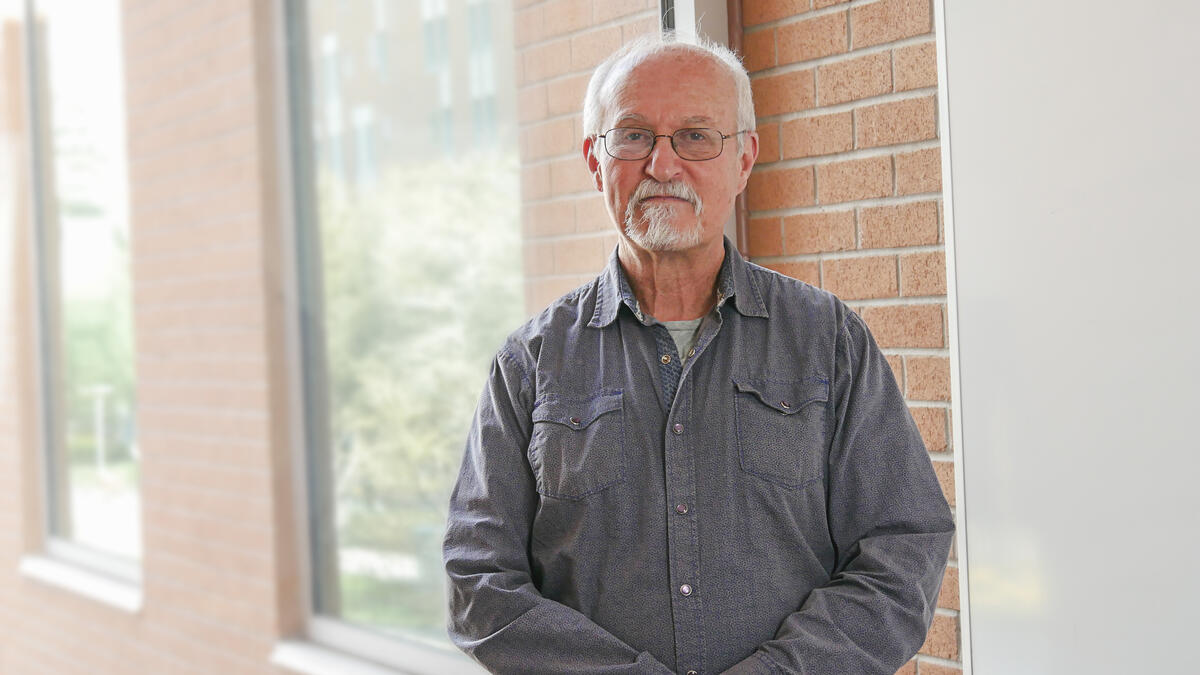The potential of parenting: ASU psychologists develop program to help children of divorce

Irwin Sandler, Regents' Professor of psychology. Photo by Robert Ewing
If you were a divorced parent, wouldn't you wish for a pill that would ensure your kids were less likely to experience depression, substance abuse and behavioral problems?
Of course, there is no such a pill, but Arizona State University psychologists have created a reliable way to help children of divorce.
Sharlene Wolchik, professor of psychology, and Irwin Sandler, Regents’ Professor of psychology, designed a highly-successful parenting program to improve the lives of children of divorce.
“Parenting is powerful, and it is a teachable, learned skill,” said Wolchik, who was named a 2017 Fellow of the Society for Prevention Research for her groundbreaking contributions to prevention science.
The power of parenting
Wolchik and Sandler created the New Beginnings program in the early 1990s. The intervention program helps children by teaching parenting skills to newly divorced parents.
“Children with divorced parents generally do well as a group over time,” Sandler said, “but from a public health viewpoint, they do have an increased risk for health problems, mental health problems and substance abuse.”
The researchers have since followed up with the participants after six months, six years and 15 years. The National Institute of Child Health and Human Development recently funded a 26-year follow-up with the original parents, children and their children — who are the grandchildren of divorce. The 26-year follow-up includes 210 families, and researchers will meet in-person with all participants unless they live abroad.
“We will again be studying the children, who are now adults, and will be assessing their parenting style,” Wolchik said. “We want to see if the program’s positive effects on parenting crossed generations.”
In addition to parenting style, Wolchik and Sandler will track the participants’ physical and mental health and the quality of their relationships with others.
The original New Beginnings program enrolled mothers who had divorced within the last year and who had children aged 9-12 years. The program includes 10 group classes that last two hours. There are also individual sessions: one for an hour and another for 20–30 minutes.
“We taught the parents to prioritize time with their children, effective discipline and strategies for keeping their children out of the middle of conflict with their ex-spouse,” Wolchik said.
The mothers practiced the parenting skills taught in the classes at home and received feedback in both the group classes and individual sessions.
“One of the most exciting findings is the New Beginnings program changes attitudes towards parenting,” Wolchik said. “Participants feel more positive towards things like warmth and less positive towards things like harsh discipline.”
Wolchik and Sandler also tested programs that taught coping skills directly to the children. Teaching parenting skills to the mothers had the biggest impact on the children. In fact, the parenting skills Wolchik and Sandler taught had a domino effect on the children’s lives.
“This program can help parents strengthen the bond with their children immediately after the divorce when they are going through a difficult situation,” Sandler said, “and that makes a substantial difference in a child’s life 15 years later.”
An example of the domino effect of the New Beginnings program is children who had improved success in school six years after the program were less likely to experience depression 15 years after the program.
“Small positive changes now can lead to bigger changes later,” Sandler said.
Beyond Arizona
ASU is no longer the only location of the New Beginnings program. In partnership with Southwest Human Development, an Arizona nonprofit that focuses on early childhood development, Maricopa County’s Family Court refers newly divorced parents to the program. New Beginnings has also been adopted in family courts in Indiana and Louisiana.
“We are now working to help more communities and entities like family courts develop effective ways to adopt and deliver an intervention program like New Beginnings,” Sandler said.
Wolchik and Sandler are now working on a web-based adaptation of the program, to further expand its reach.
“This program has shown that promoting quality and resilient parenting has long-term benefits for the children, so we want to make it easier for parents to get involved,” Sandler said. “Parents are their children’s greatest resource.”
More Science and technology

ASU professor breeds new tomato variety, the 'Desert Dew'
In an era defined by climate volatility and resource scarcity, researchers are developing crops that can survive — and thrive —…

Science meets play: ASU researcher makes developmental science hands-on for families
On a Friday morning at the Edna Vihel Arts Center in Tempe, toddlers dip paint brushes into bright colors, decorating paper…

ASU water polo player defends the goal — and our data
Marie Rudasics is the last line of defense.Six players advance across the pool with a single objective in mind: making sure that…

